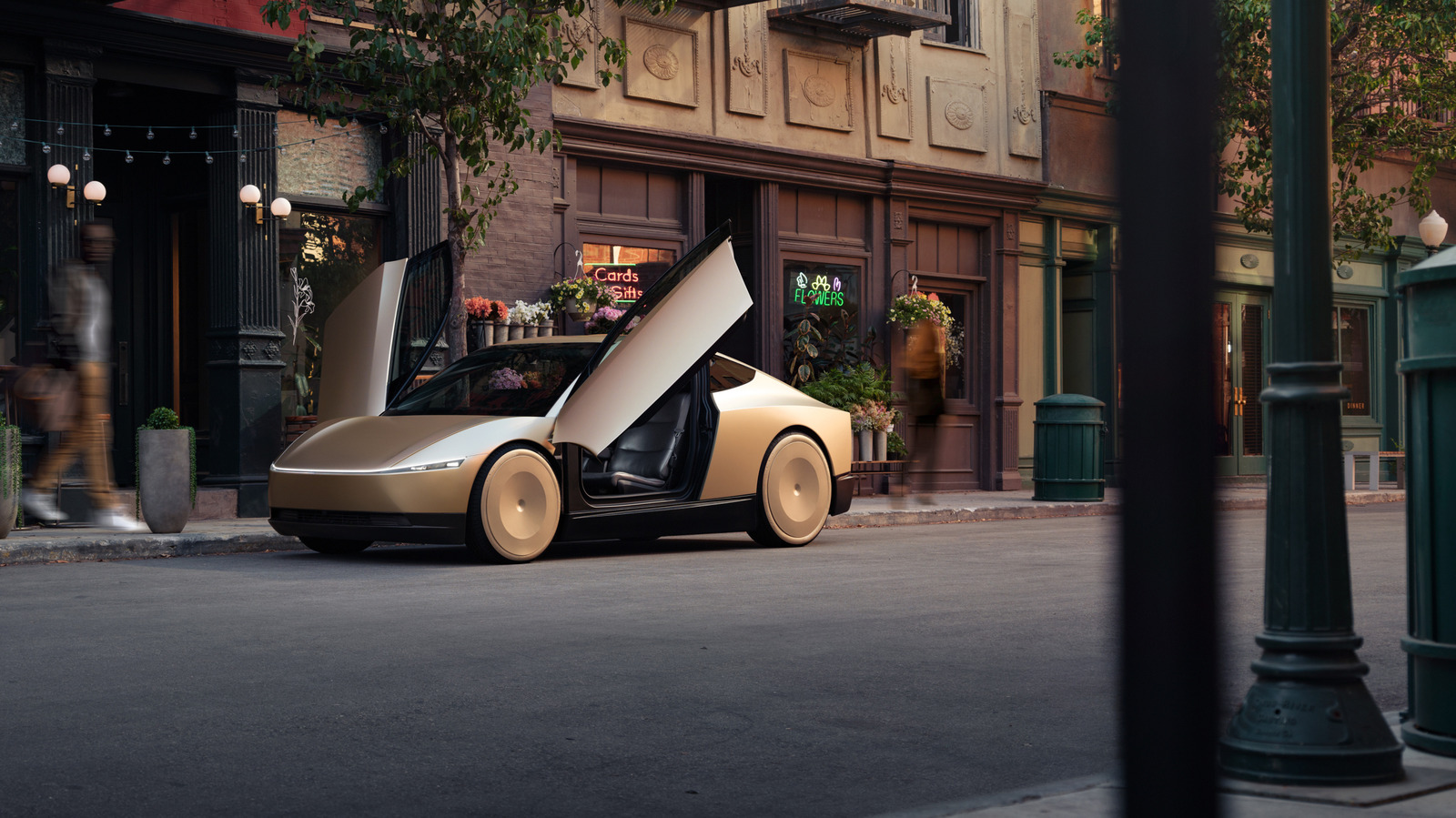Good morning! It’s Wednesday, April 16, 2025, and this is The Morning Shift — your daily roundup of the top automotive headlines from around the world, in one place. This is where you’ll find the most important stories that are shaping the way Americans drive and get around.
In this morning’s edition, we’re looking into Trump’s tariffs’ effect on Tesla, as well as a historical example of how auto tariffs do or don’t work. We’ll also look at Honda reshuffling Civic production, and Volkswagen dealers’ long fight over Scout.
1st Gear: Tesla pauses import of Cybercab, Semi parts from China due to tariffs
Tesla CEO Elon Musk may be a big fan of President Donald Trump, but Musk’s companies aren’t so happy with Trump’s policies. Tesla has been hyping up its Cybercab autonomous vehicle concept for months, and its Semi tractor-trailer for years, but now both are on hold due to the sheer cost of getting parts in from China. From Reuters:
Tesla’s plans to ship components from China for Cybercab and Semi electric trucks in the United States were suspended after President Donald Trump raised tariffs on Chinese goods amid a trade war, said a person with direct knowledge.
…
Tesla was ready to absorb the additional costs when Trump imposed the 34% tariff on Chinese goods but could not do so when the tariff went beyond that, leaving shipping plans suspended, said the person, who declined to be named as the matter is private.
The Cybercab is the headline-grabber here, but the Semi is a real issue for Tesla. Deliveries of that truck were promised way back in 2021, but only two clients have ever gotten their hands on a Semi. If this trade war keeps up, it may only ever be those two.
2nd Gear: How Brazil’s isolationist auto market fell apart
Back at the beginning of the 20teens, Brazil implemented protectionist trade policies meant to onshore auto manufacturing within the country. It was supposed to boost the nation and give its citizens good manufacturing jobs, but it didn’t last. Employment and auto production briefly spiked before falling off, never to recover. From Reuters:
When Brazil hiked trade barriers in its auto market over a decade ago, the government promised more local manufacturing, reliable jobs and better cars.
Instead, carmakers opened and then shuttered factories, ultimately shedding jobs and slashing production. Brazilians routinely pay 50% more for the same models as regional peers today, with technologies often lagging behind global markets.
We’re in the “carmakers opened […] factories” part of this process right now. If automakers start shuttering plants, we’ll know that we’re following the same path as our South American friends. Sure, the United States population is about one and a half Brazils, but that still pales in comparison to China or India. Let’s see how important we really are.
3rd Gear: Honda plans to move Civic Hybrid production stateside
Honda has definitively said that no Canadian or Mexican production will move to the United States in response to Trump’s tariffs, but there’s another nation that could send production stateside: Japan. As it turns out, Honda is willing to part with a bit of its own domestic production. From Automotive News:
Honda Motor Co. plans to move production of its hybrid Civic from Japan to the U.S. in response to President Donald Trump’s tariffs on imported cars.
Production of the five-door hybrid model, which began in February in Saitama prefecture in central Japan, will be relocated around June or July to Honda’s plant in Indiana, a spokesperson for the automaker said Wednesday.
Honda already has a sizable American manufacturing presence, so this move is more in the “rearranging shifts” bucket than “building new factories.” That’s the easy way to shift production around, though it’ll still depend on where Honda is sourcing those hybrid powertrain parts — and where the Trump admin decides to implement tariffs next.
4th Gear: VW dealers won’t get their way on Scout easily
Volkswagen dealers have been up in arms about the company’s resurrection of the Scout nameplate, and the new sub-brand’s insistence on direct-to-consumer sales. They’d hoped that VW’s new American CEO might throw them a bone, but it appears now that he’s got no such intent. From Automotive News:
VW Group and Scout Motors maintain the Scout truck brand is independent and autonomous.
[Volkswagen Group of America CEO Kjell] Gruner reiterated that Scout is not part of VW Group of America.
“It is a sister company and they, in the Volkswagen Group, can make their own business model decision,” Gruner said. “So they can decide which suppliers to choose. They can decide which go-to-market model to choose.”
Dealers are an example of what economists call “rent-seeking” behavior, which is defined as “seek[ing] to gain wealth without making any contribution to the benefit of society.” Investopedia’s words, not mine. When you shift your money around to act as a middleman in a transaction, where your presence doesn’t really benefit anyone but does suck up profit, that’s rent-seeking. It’s also a dated business model, one that buyers and sellers alike are realizing is past its expiration date.
Reverse: Perhaps the most famous GNX fan
Truly no one out there is doing it better than Kendrick. I think it’s very possible that no one does anything as well as he makes music.
On The Radio: Basement Jaxx & 100 gecs – ‘where’s my head at _’
Yes, the underscore is part of the title. When you’re making tracks this good, you get to do that. Laura Les and Dylan Brady should get to do whatever they want forever, I think.


